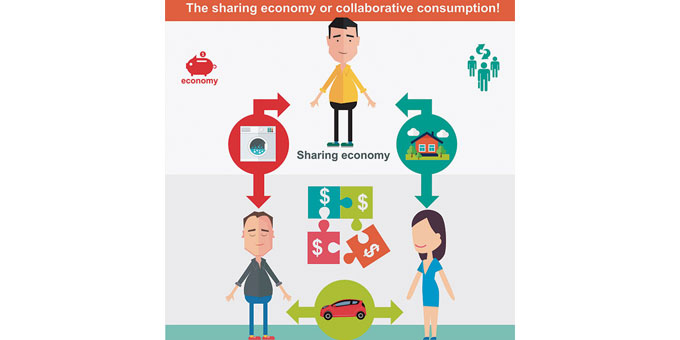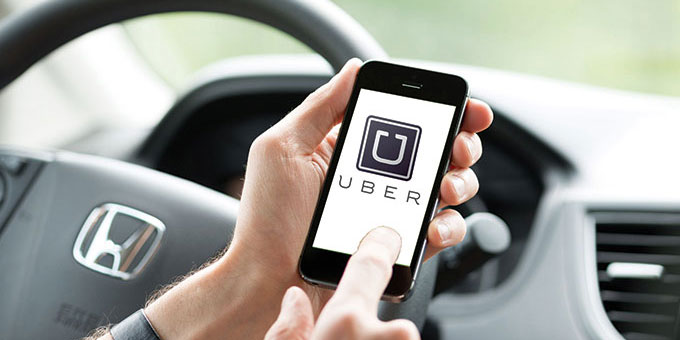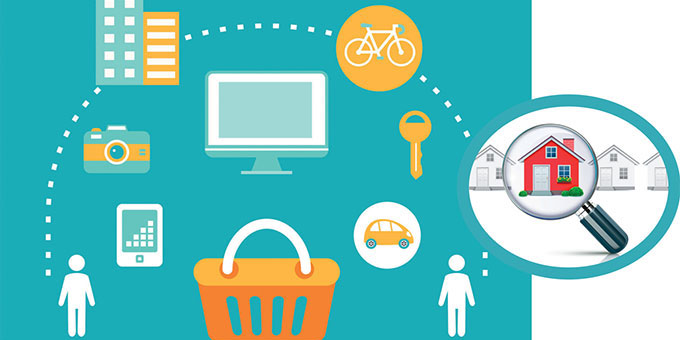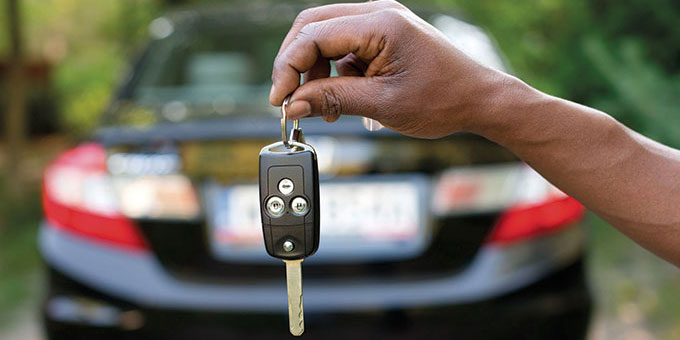I want to receive new articles by email
The rise of the sharing economy
By Jerry Brownstein
Last night about 40,000 people rented accommodations from a service that offers 1.5 million rooms in 35,000 cities throughout 194 countries. They chose their rooms on the internet and paid for everything online… but these beds were not booked by a hotel chain nor a travel service. All of them were provided by private individuals using Airbnb – a San Francisco based company that matches up hosts and guests around the world. It is the most prominent example of a huge new “sharing economy”, in which people rent beds, cars, boats and other assets directly from each other via platforms that are coordinated on the internet. The concept behind the sharing economy is simple: one person has an asset that they are not using and they are connected through the internet to another person who has a need for that asset. In the case of Airbnb the asset is an empty room or flat, and the person in need is a traveller.

The essence of this new type of economics is based on giving people the ability to easily share goods or services with each other, rather than having to purchase them or rent commercially. You might think this is similar to more traditional sharing activities like staying at a bed-and-breakfast, owning a timeshare or participating in a car pool. However, the big difference is that advanced technology has made sharing assets much easier and less expensive – and that is why the sharing economy has been able to expand so rapidly. Before the internet, renting a surfboard, a power tool or a parking space from someone else was possible... but usually more trouble than it was worth. Now sharing websites like Airbnb, and numerous others match up owners and renters for rooms, cars, equipment... just about anything. It has become simple and easy thanks to the vast amount of data that is available through modern technology.

All communications and arrangements are made through the internet, and online payment systems handle the billing. Smartphones with GPS let people see where the nearest rentable car is parked – or how close is your driver for ride apps like Uber. The web also helps greatly to build trust into the system. The sharing companies do background checks on all participants, and these are bolstered by customer reviews and ratings posted online by both parties to each transaction. This makes it easier for new users to see who is reliable and easy to deal with; which drivers are safe and courteous; what apartments are clean and comfortable; which renters were considerate and honest; etc., etc. By using Facebook and other social networks, participants can also check each other out and identify friends (or friends of friends) in common.

Just as peer-to-peer businesses like eBay allowed ordinary people to become retailers, sharing sites let individuals act as a taxi service, a car-hire firm, a boutique hotel, or whatever. All you have to do is sign up online or download the app. The growth of the sharing economy is somewhat like what happened with online shopping when it started 15 years ago. At first people were worried about security, but after making a few successful purchases from a solid company like Amazon, they felt safe buying from other online retailers. Similarly, when people use Airbnb or a car-hire service for the first time with positive results, it encourages them to try other sharing platforms.

This sharing model works best for items that are both expensive to buy and widely owned by people who do not make full use of them. Bedrooms and cars are the most obvious examples, but you can also rent camping spaces in Sweden, fields in Australia and washing machines in France. As proponents of the sharing economy like to say, ‘access trumps ownership’. The web also makes it easier for companies to rent out spare offices and idle machines, but the core of the sharing economy is people renting things from each other. Such “collaborative consumption” has several positive benefits. First of all, the owners make money by renting out underused assets. At the same time, the renters pay less than if they would have to buy the item themselves, or obtain it from a traditional provider such as a hotel or car-hire firm. (It is not surprising that many sharing firms got their start during the financial crisis.)

There are obvious environmental benefits as well. For example, sharing someone else’s car when you need it, rather than owning one, means fewer cars are required and fewer resources must be devoted to making them. This logic applies to virtually all assets that are shared. A perfect example is the home power drill. Almost every home has one, yet unless you are heavily into home improvements you rarely use it. It makes much more sense to have this tool easily available for a reasonable price on the few days each year that you need it.

The explosive growth of the sharing economy has attracted a great deal of attention due to its potential for changing the way we do business. Much of that attention is positive, but there has also been considerable push-back from traditional providers. Uber is a giant company that facilitates people getting rides through private drivers. This sharing service has been widely successful in many cities throughout the world, but in some European countries, particularly here in Spain, it has been shut down as a result of pressure from the taxi companies. Similarly, in Amsterdam officials are using Airbnb listings to track down unlicensed hotels. Because this new form of trading has grown so quickly the ability of governments to regulate and control it has not been able to keep pace. Of course there needs to be some regulation to protect consumers, but by the same token you do not want to strangle the very freedom that makes the sharing economy so flexible, convenient and economical. Hopefully the governments around the world will find a way to regulate this market with a gentle and sensible hand. The sharing economy is the latest example of the internet’s value to consumers, and if properly developed, it has immense potential to contribute to a more sustainable and enjoyable world. •












